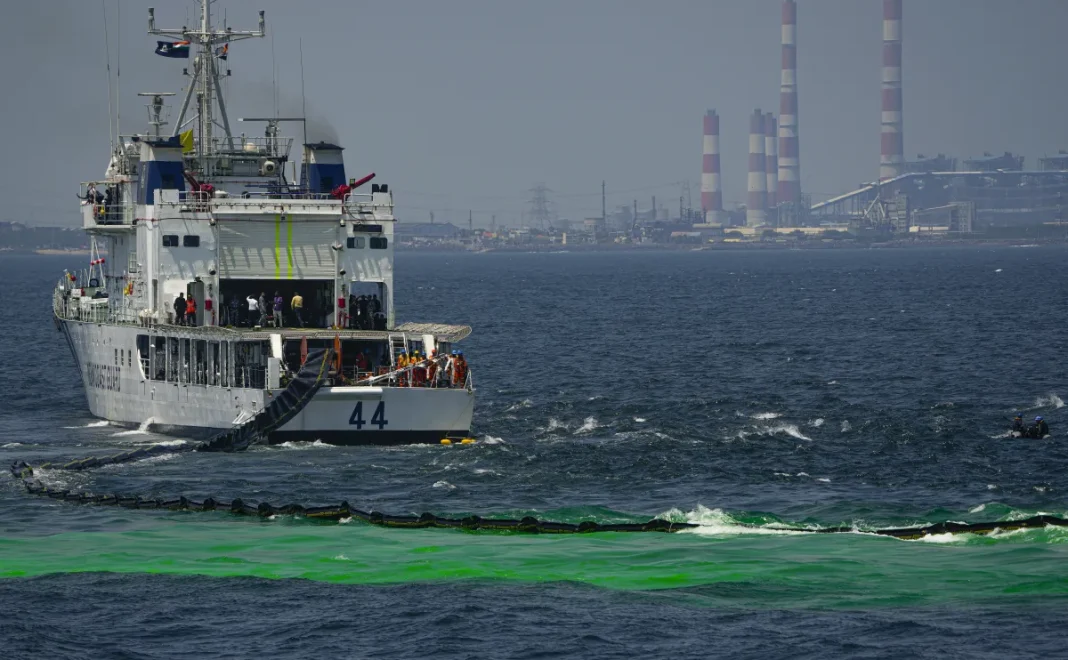Key Takeaways
- IIT Guwahati develops material that detects fuel adulteration and cleans oil spills
- Phase-Selective Organogelator (PSOG) selectively gels kerosene and diesel from water
- Solution addresses 10,000 tons of annual oil spills and dangerous fuel adulteration in India
Researchers at IIT Guwahati have created an innovative material that tackles two major environmental and safety challenges: detecting fuel adulteration and cleaning up oil spills. The breakthrough technology offers a dual-purpose solution for both marine conservation and public safety.
The Environmental Challenge
Oil spills represent one of the most devastating environmental disasters worldwide, causing massive damage to marine ecosystems, coastlines, and livelihoods. According to Oil Tanker Spill Statistics 2024, approximately 10,000 tons of oil contaminated global oceans and seas last year.
Traditional cleanup methods using chemical absorbents or burning often create secondary pollution. The rapid spread of oil across water surfaces makes containment and removal exceptionally difficult.
The Scientific Breakthrough
Professor Gopal Das from IIT Guwahati’s Department of Chemistry explained their innovation: “We have developed a Phase-Selective Organogelator (PSOG) molecule, a special class of safe materials. The PSOG was rationally designed to undergo a hierarchical supramolecular self-assembly process which ultimately leads to oil gelation.”
The material works by trapping oils like kerosene and diesel through a self-assembly process similar to how soap molecules organize in water. Once the oil is trapped, it forms semi-solid gels that can be easily removed without disturbing the underlying water.
Selective Oil Recovery
Professor Das emphasized the material’s precision: “Our developed PSOG possesses a unique ability to selectively form a gel only in the presence of some specific oil samples, namely kerosene and diesel, among a vast range of studied organic solvents as well as oil samples.”
This selective capability makes the technology particularly valuable for targeting specific oil types within complex mixtures, facilitating efficient recovery from various water bodies.
Combating Fuel Adulteration
The research addresses a critical safety issue in India where kerosene is sometimes adulterated with petrol to reduce costs. Professor Das warned: “This is a dangerous combination, as the adulterated fuel is highly flammable and has caused multiple kerosene stove explosion accidents in the country.”
The same organogel technology can detect kerosene adulteration, potentially preventing numerous household accidents and ensuring fuel quality.
Future Applications
The research team is now advancing their work toward detecting various types of fuel adulteration while enhancing the detection process efficiency through refined gelator molecule design. This development could revolutionize both environmental cleanup operations and fuel quality monitoring systems.




